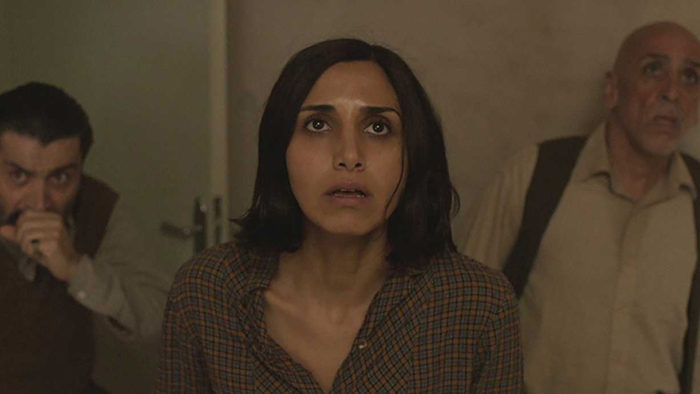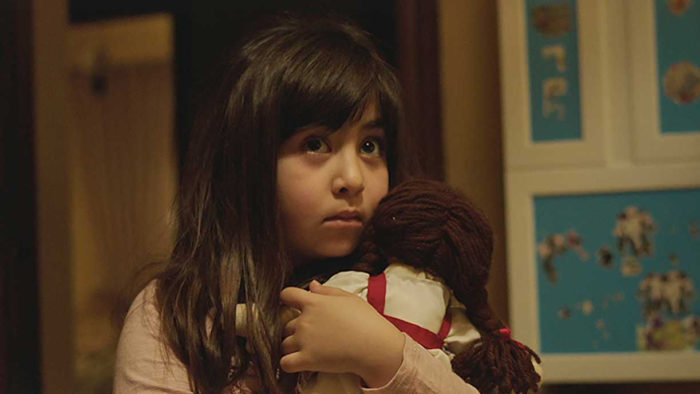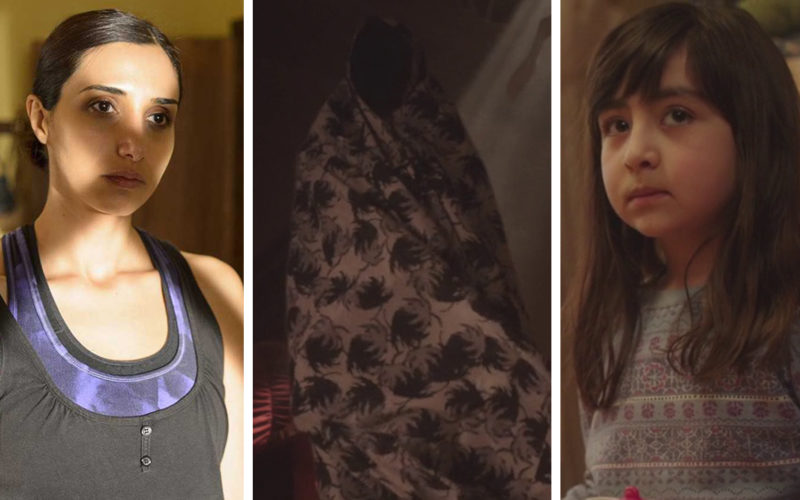Horror is an extremely massive genre because every movie industry has tried to cash in on it. Be it slasher films, gore-fests or just traditional ghosts, you’ll find a dozen of them in every country. But despite the over-saturation of the category, every horror fan has watched each of them or has at least heard the names. All except one. And that movie is Babak Anvari’s ‘Under the Shadow’.

Now, I’m not just spit-balling here. I am speaking from facts. Over the past few weeks, I asked about 88 people (all horror connoisseurs) whether they had watched ‘Under the Shadow’. And shockingly enough, 77 of them hadn’t watched or even heard about it. So, assuming that your situation is similar, allow me to convince you to watch one of the best horror movies of the century.
For starters, Babak Anvari uses a time and place that’s been used by mainstream movies for generic war movies and very rarely for horror.
The Iran-Iraq war has been depicted by American movies through two sub-genres: action-drama and thriller-drama. Some of the best examples of that are ‘Body of Lies’ and ‘Three Kings’. However, Anvari uses it to amplify the horror aesthetic of his story. That’s because war isn’t just about bullets and huge explosions. There are real lives involved who’re there with the fear of death in their hearts and that makes for a more compelling tale.

As for the time, ‘Under the Shadow’ takes place during the 80’s, which is a period famous for its body horror movies and over-the-top culture. Shows like ‘Stranger Things’ have even begun the trend of emulating that synth-wave era for modern movies of the genre. But Anvari flips that trope on its head to showcase the oppression and patriarchy that stalked the lives of women during those times.
With these subtle alterations, Anvari sets up ‘Under the Shadow’ in an environment that’s far more visceral and claustrophobic than your run-of-the-mill horror flick.
‘Under the Shadow’ uses precise editing, low-light cinematography and an emotion-driven narrative to create a monster that’s much horrifying than zombies, ghosts or vampires.
The story revolves around the family of Shideh (Narges Rashidi), Dorsa (Avin Manshadi) and Iraj (Bobby Naderi). And by putting a mother and a daughter in the middle of a war, Anvari invokes a sense of dread very organically. That’s why when Iraj, the father, leaves to attend to those who’ve been wounded during the war, you find the mother-daughter duo’s vulnerability to be a bigger fear factor than any tangible ghoul.

As most movies use jump-scares or terrifying make-up to heighten its fear factor, they become predictable during re-watches. Anvari, along with editor Chris Barwell and cinematographer Kit Fraser, creates a deliriously, claustrophobic setting to keep you second-guessing even when you re-watch the film. You never know what’s around the corner, even if you’re stuck in one building, nor do you know what’s real and what’s not. And that level of ambiguity puts you right in the shoes of Shideh and allows you to experience the fear like she’s experiencing it.
To top it all off, Anvari covers his characters with a thematic veil of guilt to intensify the roller-coaster-ride of an encounter that Shideh undergoes.
I know it has become a very cliched thing to say that a movie is layered. However, in ‘Under the Shadow’s case, it actually is. The first, very obvious layer is the sense of fear that’s caused by the war. The characters don’t know when the next bomb will land on their head and neither do we. Then there’s the air of loneliness with the inhabitants abandoning the building and further emphasized through how the movie frames Shideh. But it’s the third layer of guilt that’s the most haunting.

Shideh suffers from the guilt of not becoming a doctor and living up to her late mother’s expectations due to her rebellious attitude. Then she suffers from the guilt of not being the subservient wife that her religion or her husband demands. And finally, when all hope’s gone, she’s overtaken by the guilt of not being a good mother to her daughter, which manifests itself as the cloaked Djinn. That’s why the final act is not just a fight between good and evil. Instead, it’s a tussle for Shideh’s soul that’s personified by Dorsa.
In conclusion, all I’d like to say is that Babak Anvari has created a special movie with ‘Under the Shadow’ that is fueled by brilliant performances and impeccable behind-the-scenes work. If you want to perceive it as a pure horror flick, you can do that and have a damn good time. But if you want to take its philosophical elements into consideration, you’ll have a psychological horror movie for the ages in your hands.
Cover Image Source: Wigwam Films, IMDb




